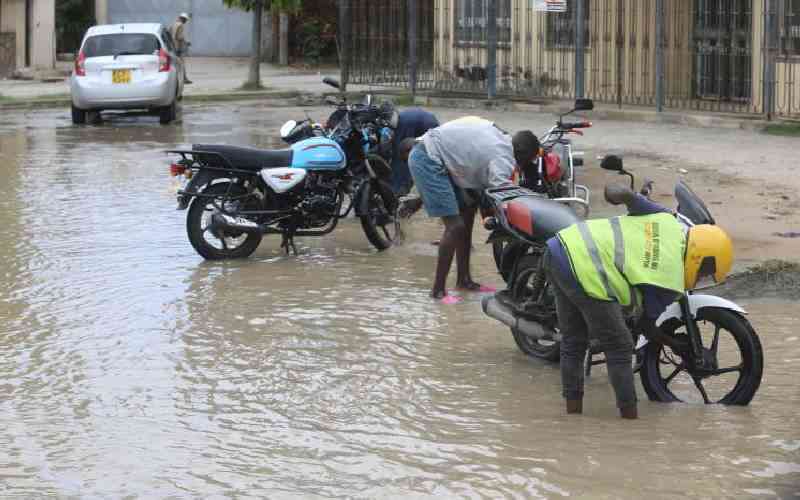
As usual, the ongoing heavy rains have exposed the country's unpreparedness in dealing with its impact, especially on transport infrastructure. After almost a year of a biting drought, which affected 4.4 million people in most parts of the arid pastoral northwest and northeast counties as well as the southeast marginal agricultural counties of Kitui and Makueni, many parts of the country are currently experiencing heavy downpours.
The downside is that motorists and pedestrians across the country are suffering because of flooded roads as heavy rains continue to pound various parts of the country.